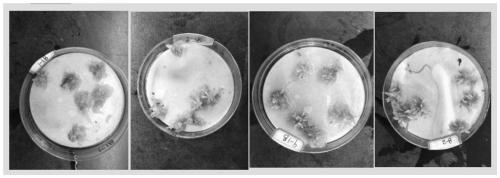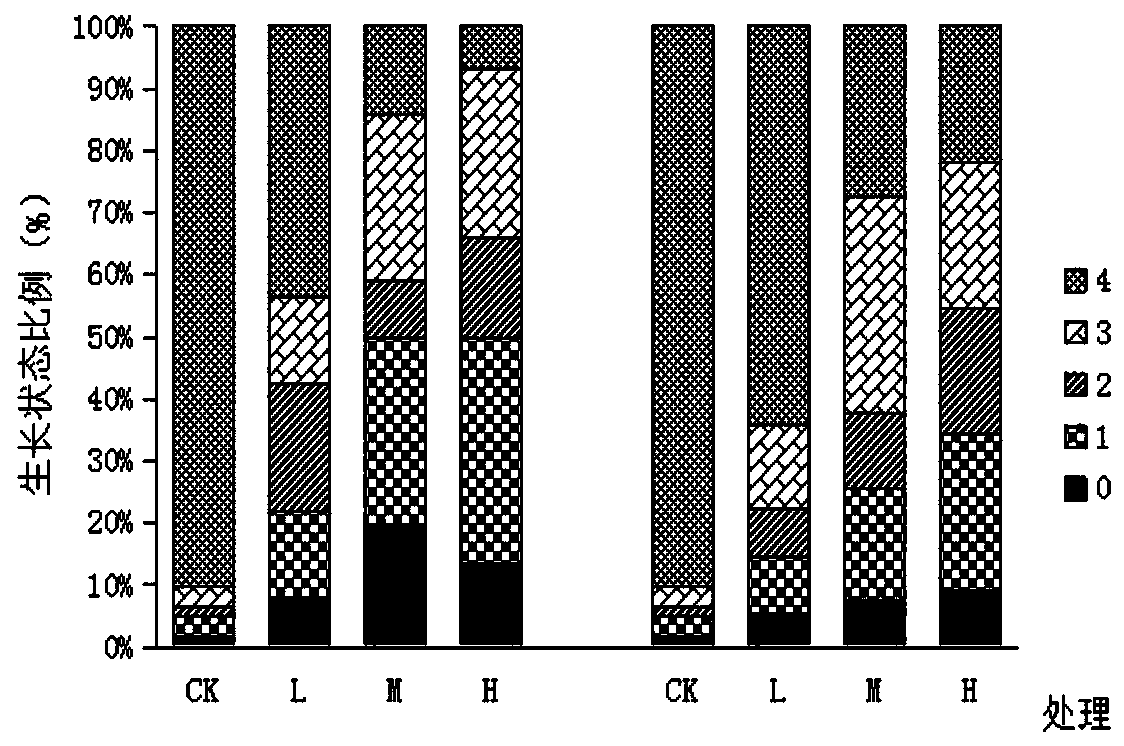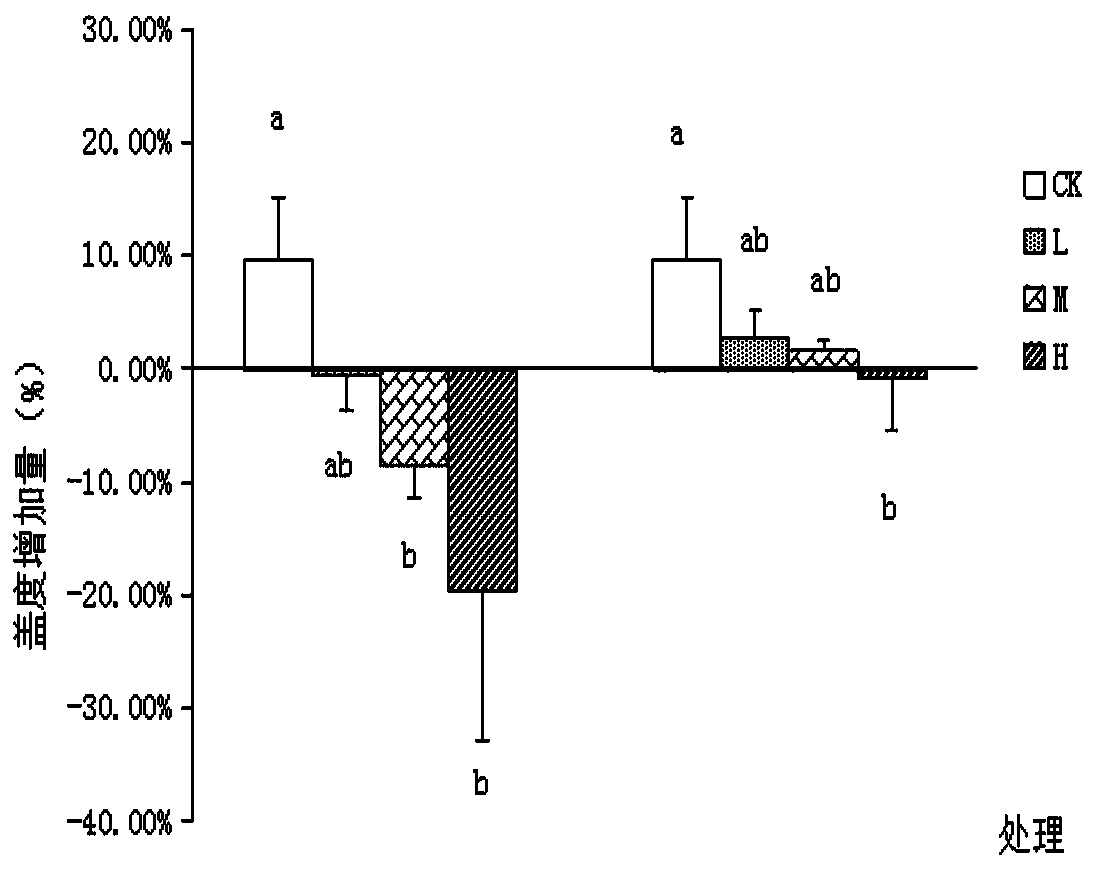Method for controlling field broadleaf weeds in early stage of sphagnum moss planting
A control method and technology for sphagnum moss, which are applied in the fields of botanical equipment and methods, land preparation methods, gardening methods, etc., can solve the problems of affecting the growth of sphagnum moss, poor control effect, poor grass control effect, etc. The effect of the number of branches, the small environmental impact, and the improvement of the biomass index
- Summary
- Abstract
- Description
- Claims
- Application Information
AI Technical Summary
Problems solved by technology
Method used
Image
Examples
Embodiment 1
[0057] A method for controlling field broad-leaved weeds in the early stage of peat moss planting, comprising the following steps:
[0058] (1) Select the plot; the slope is 1° and the soil is directly prepared, the soil is yellow-brown soil, and the pH value is 5.0;
[0059] (2) Soil preparation, clearing the vegetation on the surface; raking the top 8cm of soil and collecting it for later use; plowing the lower 25cm of soil; Excavate the first-level ditch on the periphery, the first-level ditch and the second-level ditch are connected to each other, and retain a water inlet and a water outlet; then cover the top of each compartment with 8 cm of surface soil to be used, and level the land. The first-level water ditch is 40cm wide and 30cm deep, the second-level water ditch is 20cm wide and 25cm deep; the water inlet is located on a high ground, and the water outlet is located on a low ground; after leveling the land, cover it with black plastic film; 10 days before transplant...
Embodiment 2
[0063] (1) Select a plot; with a slope of 9°, the entire plot is formed into several terraced fields according to the height of the terrain, the soil quality is not yellow-brown soil, and the pH is adjusted to 6.5 by applying ferrous sulfate powder;
[0064] (2) Clean up the surface vegetation; rake the top 10cm of soil and collect it for use; plow the lower 30cm of soil; divide the whole land into several compartments; Dig the first-level ditch, the first-level ditch and the second-level ditch are connected to each other, and retain a water inlet and a water outlet; then cover the top of each compartment with 10 cm of surface soil to be used, level the land, and the first-level ditch The ditch width is 50cm, the ditch depth is 40cm, and the secondary ditch is 25cm wide and 35cm deep; the water inlet is located on a high terrain, and the water outlet is located on a low terrain; after leveling the land, cover it with black plastic film; 12 days before transplanting, it will be ...
Embodiment 3
[0068] (1) Select a plot; the soil slope is 30°, and the whole plot is formed into several terraced fields according to the height of the terrain. The soil quality is yellow-brown soil, and the pH value is 7.0;
[0069] (2) site preparation, clearing the vegetation on the ground surface; collecting the 12cm surface soil after raking and crushing; plowing the lower 35cm soil; Excavate the first-level ditch on the periphery of the plot. The first-level ditch and the second-level ditch are connected to each other, and one water inlet and one water outlet are reserved; The first-level ditch is 60 cm wide and 50 cm deep, and the second-level ditch is 30 cm wide and 40 cm deep; the water inlet is located on a high ground, and the water outlet is located on a low ground; cover the land with black plastic film; After uncovering the black mulch film covering the ground, divert water into the canal to submerge the land, drain the remaining weeds after they die, and let the soil dry for ...
PUM
 Login to View More
Login to View More Abstract
Description
Claims
Application Information
 Login to View More
Login to View More - R&D
- Intellectual Property
- Life Sciences
- Materials
- Tech Scout
- Unparalleled Data Quality
- Higher Quality Content
- 60% Fewer Hallucinations
Browse by: Latest US Patents, China's latest patents, Technical Efficacy Thesaurus, Application Domain, Technology Topic, Popular Technical Reports.
© 2025 PatSnap. All rights reserved.Legal|Privacy policy|Modern Slavery Act Transparency Statement|Sitemap|About US| Contact US: help@patsnap.com



